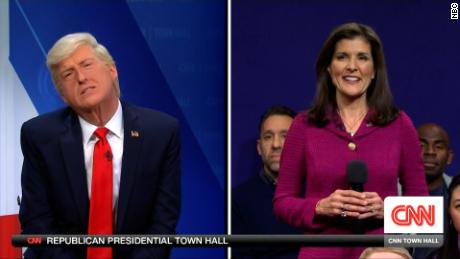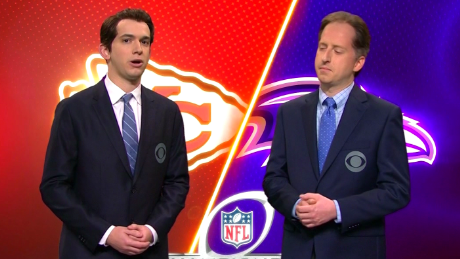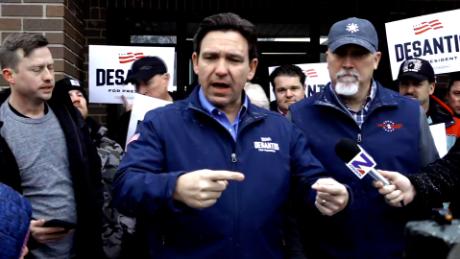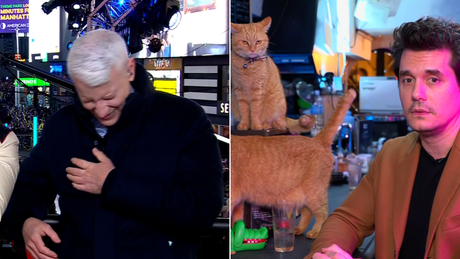New York (CNN Business)I was walking through one of the empty newsrooms at CNN's New York City office the other day when I noticed a newspaper front page, like a dinosaur fossil frozen in time.
"WORLD TURNED UPSIDE DOWN," the NYPost front page said. Next to the Post there was another stack of newspapers, equally out of date, carrying the news that the coronavirus has been "DECLARED A PANDEMIC."
Those front pages were printed six months ago this week. It was around that time when most CNN staffers began to work from home. Newspapers stopped being delivered. Almost everything else changed, too. The front pages are a little bit like a clock that stopped ticking at the moment of the blast. A reminder of when, as the Post put it, the world turned upside down.
I was grateful for the reminder. I was equally grateful on Tuesday, when, on a visit to my three-year-old's schoolâmy first time there since Marchâone of the teachers handed me a bag filled with all the clothes and belongings we left there six months ago, when school suddenly turned into a Zoom session. It was another artifact from the pre-coronavirus past.
I bet we're going to hear a lot about "six months ago" as we approach September 12 and 13âsix months since the slow-motion shutdowns sped up and much of American life went on pause. It's helpful to remember what those anxiety-ridden days and weeks were likeâto examine what's changed, what hasn't changed, and what should have changed since then.
Travel back in time
Six months ago Monday, President Trump contradicted his own health officials and downplayed the virus. Tucker Carlson drove to Mar-a-Lago and tried to talk sense into him about the crisis, but didn't seem to succeed. Health and Human Services Secretary Alex Azar tried to explain away Trump's bogus claim that anyone who needs a test can get a test. Jeanine Pirro aired an interview with Vice President Mike Pence that began with a softball question about governors making "rude comments" about lack of testing, as if manners are what mattered most at the time.
Six months ago Tuesday, I showed a graphic on CNN that depicted a strange new concept called "flattening the curve." News programs were filled with doctors warning about the growing dangers. Yet Trump was reportedly eager to hold more rallies. Peter Baker of The New York Times called coronavirus a "leadership challenge he was not prepared for." NPR "Weekend Edition" co-host Lulu Garcia-Navarro asked on Twitter, "Are we in the opening credits of the movie or halfway through before the nail biting ending?"
Looking back, we now know we were just in the opening credits. If you want to flash back in time six months, here's the Reliable Sources newsletter from March 8. It is discomfiting âand maybe darkly amusingâto read that edition now. I was asking questions that would be answered within a matter of days: Would movie premieres be delayed? Would Disney World close? Would TV guests join via video conferencing from home? Of course, of course, of course. The impacts would be beyond belief. And still are.
To me, at least, and maybe to you, the country adjusted slowly and then all at once. As Matt Pearce of the Los Angeles Times memorably said in early March, "We are all coronavirus reporters now." And we still are. We can learn a lot by looking back and comparing March's coverage to the present. It is revealing to see which media outlets and political leaders have mostly moved past Covid-19, and which are still taking it very seriously, which leads to this next point...
Six months ago Wednesday
This is what POTUS tweeted on March 9: "So last year 37,000 Americans died from the common Flu. It averages between 27,000 and 70,000 per year. Nothing is shut down, life & the economy go on. At this moment there are 546 confirmed cases of CoronaVirus, with 22 deaths. Think about that!"
Yes, do think about that.
On Tuesday evening Trump held a campaign event in North Carolina, all but pretended like the crisis has passed, and evidently violated the state's mask order, as CNN's Kevin Liptak reported.
Coming soon: Another gutting milestone
When I was Charlie Sykes' guest on The Bulwark podcast on Tuesday, Sykes reflected on the media's coverage of the 100,000 milestoneâthat is, when America crossed the 100,000-dead-from-Covid markerâand asked me this: "How will the media treat the 200,000 milestone?"
I hesitated to answer because I don't know, and I worry that these terrible markers will get less and less attention as the death roll rises.



















